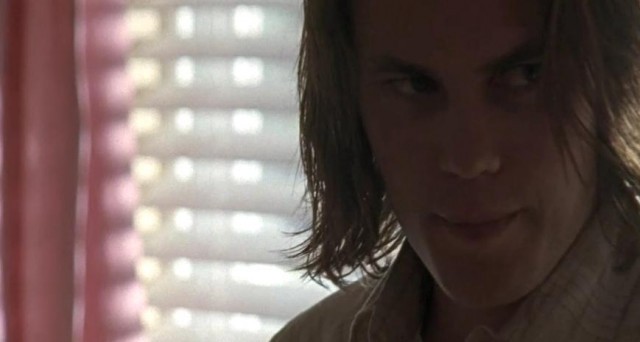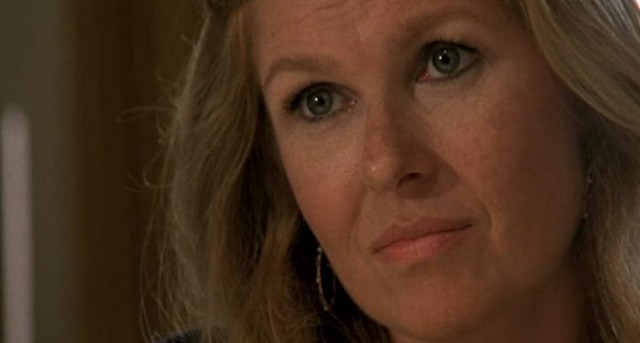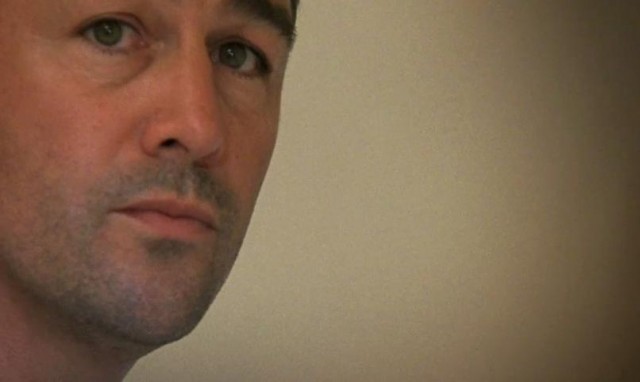Generation 'FNL'
by Sarah Blackwood

I was born in Houston, Texas. By the time I was three years old, I was living in New Jersey for the long haul. My family has no true roots in Texas, so leaving it was not a major upheaval. My father always said that Texas was the best place he ever lived. Maybe it was the best place I never really lived. This weekend, the story of the best place that none of us have ever lived — Dillon, Texas — comes to a close. After five seasons, “Friday Night Lights” finishes up, sending those ochre-tinged Texan spaces that have come to feel like home into cold blue digital storage.
“Friday Night Lights” never garnered much of an audience for a network show, and only a semi-wacky deal where NBC would let DirecTV run the season months before the network allowed the show to stay on the air. No doubt one reason for the small audience is that it did not lend itself to easy demographic parsing. Who is this show for? Middle America? Teens? Sports fans? Viewers who had a hard time with this question just didn’t tune in. Fans trying to address the problem were heard, in bars across Brooklyn, crying out “but it’s not really even about football!” (this most often shouted by the cool kids who pat themselves on the back for having fled the cool kids from their hometowns).
“FNL” is about football in the same way that Ulysses is about perambulation. Also, “FNL” is about: hometowns, teens, adults, the city, the country, the rich, the poor, huddled masses, yearning, hard-core Christian rock, girls with long legs, nachos, rich farmland, and men wielding pink plastic bicycles against doofus TAs who have seduced their daughters.
One way you could put it is that “FNL” is about how silly, even tragic it is to be “about” something. How freeing it can be to turn your back on what you are supposed to be or to like. It points its fingers directly at self-professed “sophisticated” media consumers and asks us: “Don’t you like things that are beautiful?”
It was never clear whether “Friday Night Lights” was a teen drama or an adult saga, and I think of this as part of the show’s genius. To put the case more vulgarly, as a thirty-something viewer, I have, in turns, had the hots for both high school fullback Tim Riggins (the glow of youth! We could practice SAT analogies together!) and Coach Taylor (growly adult man-man!). Let’s not even get started on Tami Taylor and her cowboy boots. Unlike so many television shows, “FNL” was always able to hit that sweet spot where teenagers are beautiful in their raw inarticulateness and adults are, like, heartbreakingly attractive in their desire to take care.

For me, the show was best when it drew you into one world, only to have the other suddenly come into view, redrawing the boundaries of whatever reverie (you as head cheerleader, you as embattled school principal) you were floating around in. Case in point, Season Two opens on the town public pool, where various packs of barely-dressed teenagers flex and sway and ogle one another. The pool is the perfect figure for the seething flow of hormones coursing through these kids, the way sex and youth makes you feel weightless, elated. But humans also like pools for other more amniotic reasons, and as Tami Taylor waddles in, just about ten months pregnant, the needle comes skipping off the record, and the kids stop to stare. This is what can happen when you seal the deal, sex-wise. I mean, look at that lady! “There ain’t a room big enough to contain me,” Tami trills at her mortified lifeguard daughter, and eases herself into the water.
The series finale — this is not going to wreck anything for those who haven’t seen it — features a scene between eighteen-year-old Julie Taylor and her high school love Matt’s grandmother, the wrinkled and senile Grandma Saracen. Julie’s Botticelli hair and naturally-collagen-rich face press into the old woman’s shoulder as they embrace. Grandma Saracen — whose life has reduced concentrically until it resides nearly exclusively in a rocking recliner, on a linoleum floor, in front of a television, in a shotgun house in small town Texas — flutters about with joy over the life that spreads out in front of the girl. Julie does not recoil from or judge this truth, how small one’s world might or might not get at the end, and I think we are meant to realize that her proximity to this small life is what will help hers bloom.
I’ve covered “Friday Night Lights” for Television Without Pity for the entirety of its run, so you’ll forgive me for being slightly overwrought when I reflect on how this show has ushered me from the extended adolescence of my late twenties to this moment right now, as I try to get my shit together before I have a baby next month. Let me tell you, Gestational Time is Odd Time, it expands and collapses multiple times per day, so that one minute you have all the time in the world and the next you realize how quickly you are hurtling through space toward this end that you can do nothing to headfake around.

And this is basically what “Friday Night Lights” talks to us about, how time moves so strangely, how we go from late nights drinking beer and messing around in a deserted field with our friends, our problems seemingly so huge, to late nights drinking wine with a partner, the very hair on our heads weary, our problems seemingly so huge. The thing that the show did so beautifully was refuse to belittle any of these micro-times that we all pass through during a life lived.
I don’t know exactly when it was that I started feeling like I had a past, but whenever it was, it was a sad and wonderful day. Once you have a past, you can always go back (in your mind) but you can also never go back (am I really ever going to see dawn from the wrong side again?). “FNL” makes me feel the way that one LCD Soundsystem song about friends makes me feel. Like once I danced all night in a condemned loft with my friends but now I do not. Both of these things are totally okay.
So I have a proposition: let’s all watch the series finale. Then we can meet out on the field in the dark. We’ll toss the football around a bit and shoot the shit, crickets sounding in the background.
Sarah Blackwood professes about literary stuff in Manhattan and watches a lot of television in Brooklyn. She’s had the same online blog journal, Drunken Bee, for seven years because she doesn’t really understand Tumblr.
